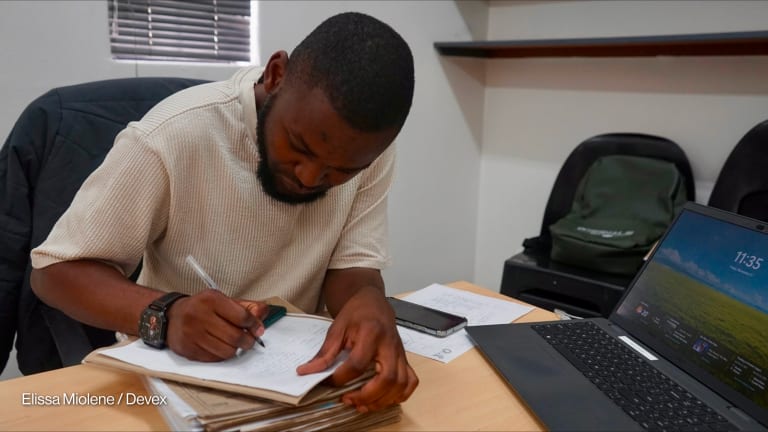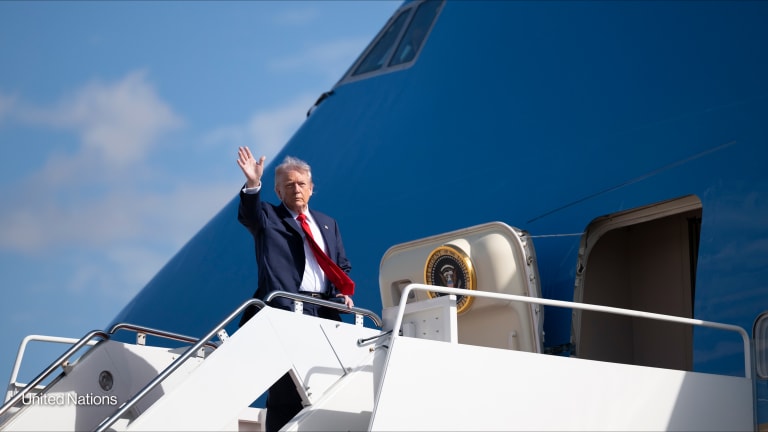
MANILA — As the Ebola outbreak in the Democratic Republic of the Congo threatens to spiral out of control — amid intense fighting near the country’s borders with Rwanda and Uganda — the global health community is reminded of the 2014 Ebola outbreak in West Africa: Has the international community learned its lesson? And is it responding differently to the present crisis?
5 experimental treatments introduced in latest DRC Ebola outbreak
Efforts to contain the latest Ebola outbreak in DRC have been given a vital boost with the availability of five experimental medicines, WHO experts told Devex, though none have yet been officially licensed.
The West Africa Ebola outbreak exposed weaknesses in the countries’ health systems, in addition to how unprepared the world is when it comes to tackling such a major health threat. There were calls for reforms to institutions, such as the World Health Organization, and internal reviews among humanitarian organizations that responded to the outbreak, such as Médecins Sans Frontières.
It also led to the launch of several funds for emergencies, and a renewed call for countries to strengthen their preparedness and response through better organized, functioning health systems.
Much of the lessons from the outbreak in West Africa helped inform the response in the DRC, and after less than three months, WHO officially declared the outbreak over in July.
“The support we asked for came quickly — but not only the international community support — the most critical element was the government's commitment, and there was a very good level of commitment by the government to lead and define,” WHO Director-General Tedros Adhanom Ghebreyesus told Devex, at the sidelines of the 69th regional meeting of its Western Pacific office in Manila.
Partners on the ground were also in alignment and worked together, Tedros added.
But the donor community is still very much glued to acute problems. Critical platforms, such as the Contingency Fund for Emergencies — meant to provide much-needed resources to WHO in response to disease outbreaks and health crises — still receive piecemeal support. Of the $100 million per year target for CFE, so far the organization has only received, at best, a third of the money required, Tedros said.
“We have to learn not to be reactive. We should get out of panic-based response or support,” he said. “It's like what they were saying in the Pacific Island countries: You fix the boat before the storm comes.”
In this instance, the storm came too soon.
Exactly a week after the outbreak was deemed to have ended, the DRC’s health ministry announced new cases in North Kivu province, an area where armed conflict has spanned for more than a decade, making it difficult for actors to respond.
WHO’s base operation in Beni town also sustained multiple attacks, from the first week of September when the fighting intensified; civilians were killed, and kidnappings took place. These have forced WHO to stall operations for two or three days at times, slowing the response.
“When we're slow or when we're not responding, the virus continues because it gets the advantage, and that ... is not good because it will propagate into additional provinces, other provinces, nearby provinces, and even into the neighboring countries like Uganda and Rwanda. So what we're saying to the U.N. Security Council is, please, please help us address this security challenge we're facing,” Tedros said.
As of Oct. 10, a total of 194 cases, including 122 deaths, have been reported by the country’s ministry of health.
Asked how the organization is trying to prevent panic among neighboring countries, the WHO aid chief said they’ve long campaigned for countries to prepare.
“Uganda, for instance, is prepared, even sending cold chain equipment, and also training their personnel, sending vaccines, and at the same time, having all the formalities to endorse the use of the vaccines,” he said.








